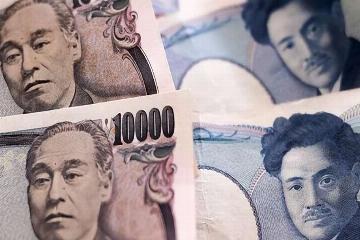In the realm of international relations and economic alliances, the phrase "Wait until the pig is fat before slaughtering it" resonates ominously for nations exploring friendship with the United StatesThis expression encapsulates a painful truth that nations may face when forming alliances: the risk of being exploited when they are most vulnerableHistorically, the United States has demonstrated this tendency, exemplified by its treatment of allies like Japan.
The complexities of this relationship have been played out on the global stage multiple timesFor instance, Japan, once viewed as a protégée nurtured by American power and influence, has been subject to economic maneuvers that have effectively siphoned wealth away from itThe infamous Plaza Accord of 1985 serves as a prime example, wherein the U.Semployed financial strategies that manipulated currency values to its advantage, severely impacting Japan's economy.
Additionally, during the Asian Financial Crisis of the late 1990s, Japan found itself nearly entrenched in a financial disaster
Advertisements
Its investments across Southeast Asia, which were once considered robust and thriving, faced sheer devastationTime and again, Japan has experienced the precariousness of its relationship with the U.S., rising from a supportive ally to the perceived role of an economic victim.
The wealth harvested from Japan through such financial strategies often found its way into the burgeoning Chinese marketThus, U.Sinvestments fueled growth in China while virtually guaranteeing that Japan saw none of the benefitsThis trend raises pertinent questions about the long-term ramifications of financial dependencies created through such economic interactions.
Currently, Japan finds itself on the brink of a potential repeat of historical exploitation, especially with the yen hovering around 157.80 against the dollarThis decline of over 10% this year marks the fourth consecutive year of its devaluation
Advertisements
The ongoing struggle can be attributed largely to a stronger dollar and widening interest rate differentials—somewhat alarming for a country still heavily wrapped in the great economic fabric woven with the U.S.
The backdrop of the U.SFederal Reserve's recent interest rate cuts, which aimed to stimulate the domestic economy, has initiated a dangerous shift—a currency war brewing on the Asian frontAs the holiday season approaches, the volatility within the U.STreasury market further complicates matters for the yen, with analysts considering the significance of the ongoing economic dialogue between the U.Sand Japan.
For Japan, the situation necessitates strategic economic considerationsWith the Federal Reserve potentially revealing more tools in its monetary arsenal, the Bank of Japan may find itself in a position to raise interest rates to align with the U.S
Advertisements
This could either stabilize the yen or further expose Japan to the whims of American monetary policyThe decisions made now carry weighty implications not just for Japan but potentially for the entire region.
Despite a prevailing sense of caution among Bank of Japan officials regarding interest rate hikes, a shift could be imminentRecent meetings capture the tension between the desire for immediate action and the need for careful monitoring of wage trends and broader economic indicators, particularly those stemming from the U.SThis has led some bank members to advocate for a potential increase in policy rates.
As the U.Spivots into a cycle of lower interest rates, it subsequently faces a dilemma regarding the management of its currency within an increasingly competitive global marketThe influx of cheap dollars into the economy raises urgent questions about inflationary impacts and the pressures that will, in turn, be felt on assets priced in dollars.
For Japan, the efforts of the U.S
- Factors Influencing Energy Futures Market
- Trends in Financial Technology Development
- Trends in Capital Flows in Emerging Markets
- Meeting the Needs of Foreign Enterprises
- Applications of Supply Chain Finance
to draw capital into its markets by enticing investments with competitive interest rates create a delicate balancing actIf the yen’s depreciation continues unchecked, with risk factors associated with cross-border capital flight heightening in response to economic instabilities, Japan could find itself in dire straitsAs such, controlling the yen’s value is not merely a matter of national pride but a fundamental component of economic stability.
Amid these economic complexities, it is essential to examine the reactions of key global players like China, another significant holder of U.SdebtOver recent months, China has consistently reduced its holdings of American Treasury securities, echoing sentiments of discontent regarding U.Sfinancial policiesThis reduction, following similar trends from other large creditors like Japan and the UK, could hint at wider geopolitical ramifications as nations reconsider their dependencies.
The overarching narrative here is one of enactment and reaction
